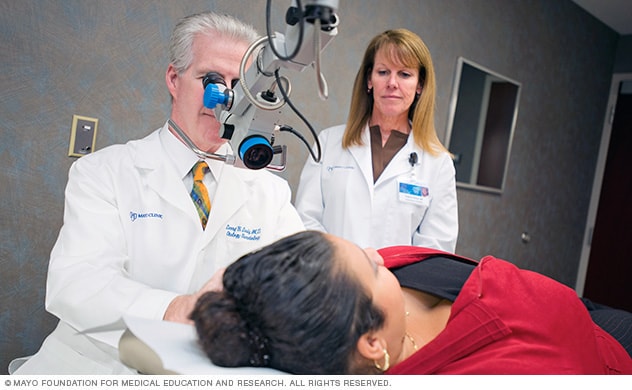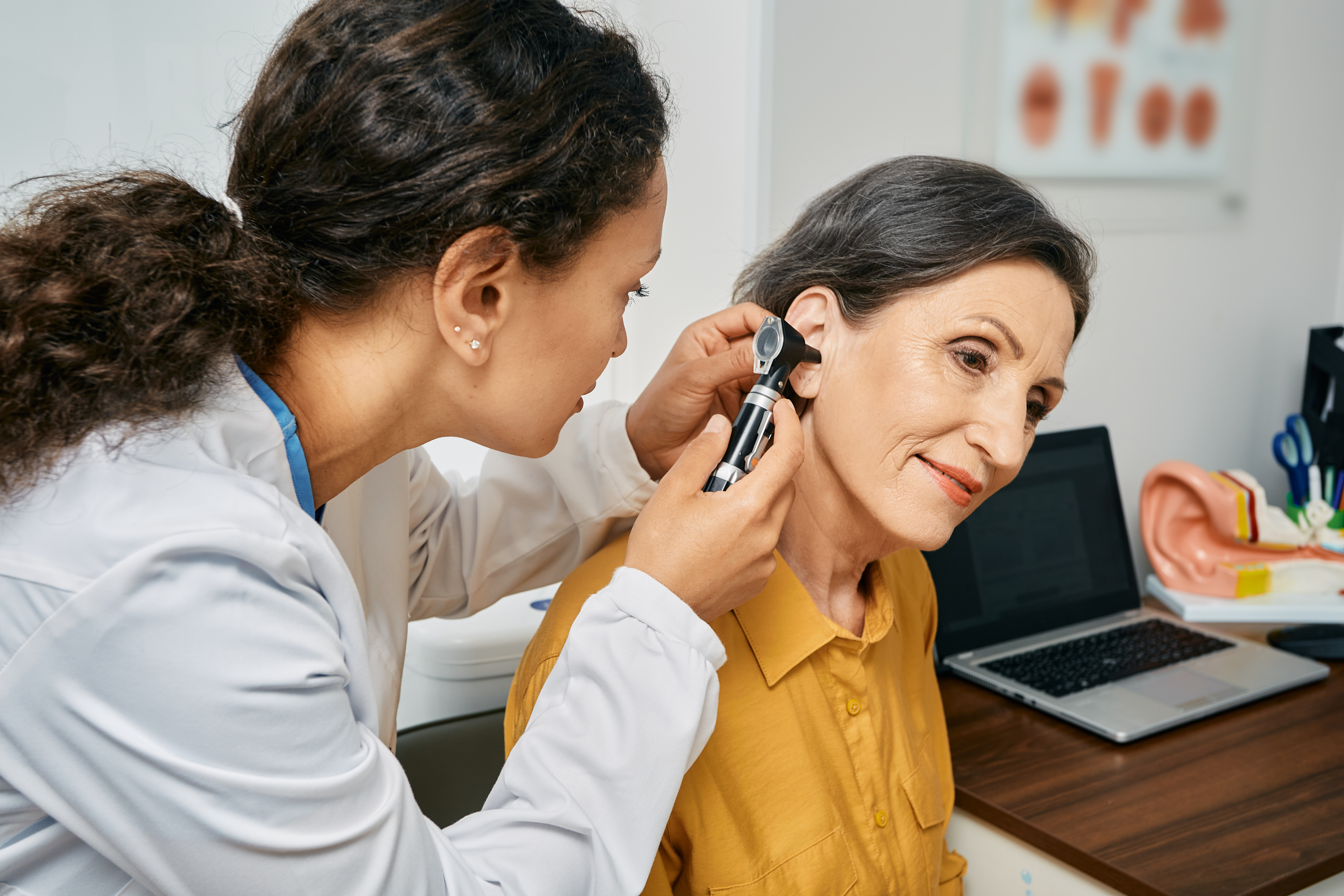5 Must-Know Signs You Should Visit a Sinus Doctor Today
5 Must-Know Signs You Should Visit a Sinus Doctor Today
Blog Article
Checking out the Area of Otolaryngology: What to Anticipate When You Seek Advice From an ENT
Otolaryngology, frequently referred to as ENT, incorporates the medical diagnosis and therapy of nose, throat, and ear problems. For those experiencing related issues, speaking with an ENT professional can give clarity and alleviation. Recognizing what to expect throughout such appointments is essential for reliable communication and treatment. This introduction will detail crucial aspects of the ENT experience, including typical factors for gos to and the processes entailed in diagnosis and treatment.

Comprehending Otolaryngology: A Summary
Otolaryngology, typically described as ENT (Throat, nose, and ear) medicine, is a specific branch of medication that concentrates on the diagnosis and treatment of problems impacting these important locations of the body. This area encompasses a wide variety of conditions, including those pertaining to hearing, equilibrium, breathing function, and speech. Otolaryngologists are trained to handle both medical and medical therapies, making use of sophisticated methods and modern technologies. Their knowledge expands beyond standard ailments, dealing with issues such as allergies, sinus infections, and hearing loss. Additionally, they play a critical function in the administration of head and neck cancers, supplying comprehensive care customized to private client requirements. On the whole, otolaryngology stays necessary for preserving health and wellness and top quality of life in afflicted individuals.
Usual Factors to See an ENT Specialist
Many individuals seek the proficiency of an ENT specialist for a variety of factors, reflecting the diverse nature of problems that impact the nose, ear, and throat. Usual concerns consist of chronic sinus problems, which typically leads to consistent nasal congestion and face pain. Allergic reactions and their linked symptoms, such as sneezing and itching, additionally motivate check outs to these experts (ENT Doctor). Hearing loss, whether gradual or sudden, is an additional significant factor for examination. In addition, individuals might look for examination for throat disorders, consisting of consistent hoarseness or ingesting difficulties. Sleep apnea, defined by cut off breathing during sleep, is frequently addressed by ENT specialists too. Each of these problems highlights the significance of specialized care in managing intricate ENT-related health problems
Planning for Your ENT Consultation
When getting ready for an ENT consultation, it is vital to gather pertinent information and take into consideration any particular problems. Individuals need to put together a detailed case history, consisting of previous ear, nose, or throat issues, surgeries, and current medications. Recording signs and symptoms-- such as extent, period, and regularity-- can supply useful understandings for the ENT specialist. In addition, people must prepare a listing of inquiries they want to ask, making sure that all problems are addressed during the see. Bringing along any kind of appropriate clinical documents or test outcomes can better assist the ENT in recognizing the individual's problem. Clients need to verify their appointment details, including place, time, and day, to decrease any last-minute confusion. Appropriate prep work can improve the performance of the appointment and lead to better end results.
What to Anticipate During the Assessment
As the consultation begins, the client can expect to participate in a detailed conversation with the ENT expert about their symptoms and case history. The expert will certainly ask about the duration, frequency, and seriousness of signs and symptoms such as hearing loss, nasal blockage, or sore throat. Furthermore, the client's previous clinical problems, medications, and any type of pertinent family history will be reviewed, aiding the expert in developing a total understanding of the person's health and wellness. The ENT may also ask regarding way of living elements, such as direct exposure to irritants or toxic irritants. This open dialogue develops a structure for the examination, making certain that the individual's worries are dealt with and establishing the phase for any kind of necessary analyses or referrals for therapy.
Diagnostic Examinations and Procedures in Otolaryngology
A range of diagnostic tests and treatments are vital in otolaryngology to precisely evaluate and detect conditions affecting the throat, nose, and ear. Typical tests include audiometry, which gauges hearing function, and tympanometry, assessing center ear stress. Nasal endoscopy enables visualization of the nasal flows and sinuses, while laryngoscopy checks out the throat and vocal cords. Imaging methods, such as CT scans and MRIs, give in-depth views of head and neck structures. Allergy screening may also be carried out to identify triggers for sinus or breathing issues. These analysis tools make it possible for ENT professionals to develop a thorough understanding of individuals' problems, ensuring tailored and reliable monitoring plans. Correct diagnosis is necessary for effective treatment results in otolaryngology.
Therapy Choices Provided by ENT Specialists
ENT experts use a variety of therapy alternatives tailored to address certain conditions influencing the ear, nose, and throat. These therapies vary from conservative methods, such as drug and way of life modifications, to more intrusive treatments. Allergic reactions may be managed with antihistamines or immunotherapy, while persistent sinus problems may call for nasal corticosteroids or sinus surgical procedure. For hearing loss, ENT professionals frequently advise listening devices or surgical interventions like cochlear implants. In Hearing instances of throat disorders, options can include speech therapy or surgical procedures to eliminate blockages. Furthermore, they might provide support for taking care of rest apnea, including the use of CPAP gadgets or surgical interventions. Generally, the objective is to enhance patients' top quality of life via individualized care and effective treatment techniques.
When to Seek Follow-Up Care With an ENT
When to seek follow-up treatment with an ENT professional is important for handling recurring signs and symptoms or problems associated to ear, throat, and nose problems, identifying. Clients must think about scheduling a follow-up appointment if signs and symptoms linger regardless of first therapy, such as persistent ear discomfort, nasal congestion, or throat discomfort. Modifications in hearing, balance issues, or uncommon nasal discharge might additionally require more evaluation. In addition, if a client experiences negative effects from recommended medications or has actually gone through a procedure, follow-up treatment is necessary to monitor healing and attend to any problems. Prompt consultations can ensure reliable monitoring of problems, stop prospective complications, and give assurance relating to one's wellness. Seeking follow-up treatment promotes positive health management in otolaryngology.
Often Asked Inquiries

What Certifications Should I Seek in an ENT Expert?
When seeking an ENT professional, one must look for board certification, appropriate experience, and strong person evaluations. In addition, efficient communication skills and a caring strategy can greatly improve the overall therapy experience.
Just how Do I Choose the Right ENT for My Requirements?
Selecting the right ENT specialist entails examining their certifications, experience, and person evaluations (Otolaryngologist). It is necessary to consider their communication style and approach to treatment, guaranteeing they align with the person's particular wellness needs and preferences
Are There Any Type Of Threats Related To ENT Procedures?
The dangers related to ENT procedures might consist of infection, bleeding, anesthesia complications, and prospective damages to bordering frameworks. Patients ought to talk about these dangers with their doctor to comprehend individual problems and guarantee notified choices.
Just How Can I Manage Anxiety Before My ENT Appointment?
To handle stress and anxiety before a visit, individuals can exercise deep breathing exercises, imagine positive end results, prepare concerns ahead of time, and seek assistance from close friends or household, fostering a sense of confidence and peace.
What Should I Do if I Experience Adverse Effects From Therapy?
The individual should promptly report them to their healthcare copyright if side impacts from treatment happen. Changes to treatment or added interventions might be needed to guarantee security and performance in managing their problem - Sinus. As the appointment begins, the person can expect to engage in a thorough discussion with the ENT specialist concerning their signs and symptoms and clinical background. These analysis tools make it possible for ENT experts to create an extensive understanding of clients' conditions, making sure customized and reliable monitoring strategies. ENT experts offer a selection of treatment choices customized to address specific conditions influencing the ear, throat, and nose. When looking for an ENT specialist, one need to look for board certification, appropriate experience, and solid person testimonials. Choosing the ideal ENT expert includes examining their qualifications, experience, and individual testimonials
Report this page